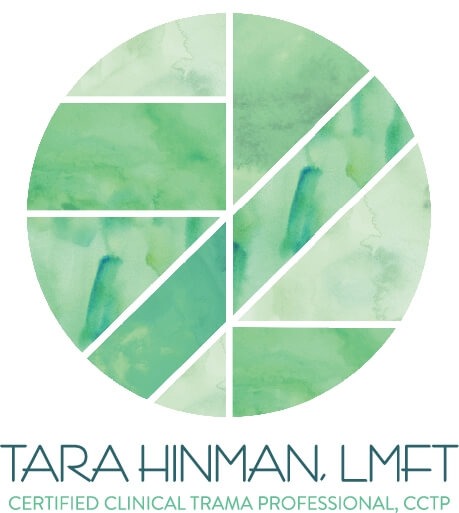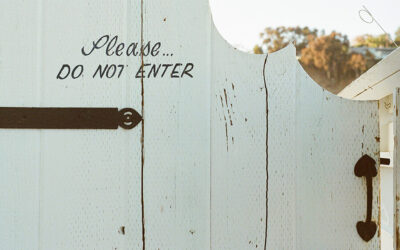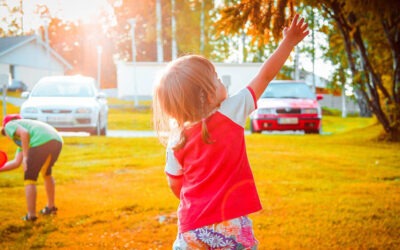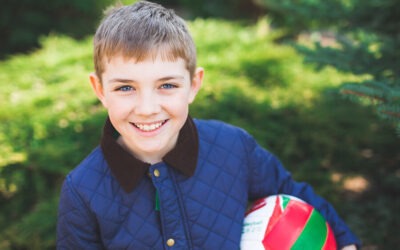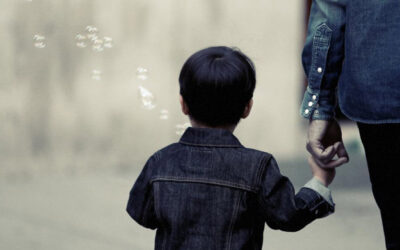Because it is one of my favorite chapters in ScreamFree Parenting by Hal Runkel, I would like to begin with the title of chapter seven, You Are Not a Prophet (And Neither is Grandma). Yes, that is correct, neither you nor I (nor grandma) are prophets… we do not possess some sort of magical power or own a crystal ball that enables us to take a peek into the future. Since we are mere mortals with no way of divining the future, let us take a look at what Hal means in this chapter on parenting.
First, let us review from previous parenting posts what is most helpful in out parenting journey… it is to keep our cool, check in with our anxiety about our children, and use our own remote controls to give ourselves an adult-sized “time out”. Now that we are calm, what is it about “predicting” the future in our roles as parents that is not helpful?
Much like the chapter in the book, this blog is about language and our use of it when it applies to our children. The following quote by philosopher Ludwig Wittgenstein may help with this: “The limits of my language means the limits of my world.” By labeling our children out of our need to control them, we are severely limiting their ability to flourish, to find their own space and voice, and to self-define. As the quote indicates, we are limiting their world. Even so-called “positive” language and labels can become problematic. Phrases such as “Susie is such a good girl” or “Johnny is a hard worker” have the potential to cause distress for our children. What happens when Susie makes a poor choice or Johnny simply doesn’t give a task his all? If we have been defining them as only these things, who are they without them? Will Susie think that she is no longer valuable because at a particular moment she wasn’t a “good girl”? Will Johnny feel inadequate at the times when he chooses to be something other than a “hard worker”? By labeling our children, we are limiting them, often for a lifetime. How about the negative labels such as “He/she is our problem child”? Language can hold great power, and this form of labeling has the very real potential of becoming a self-fulfilling prophecy. The child may begin to self-identify with being the “problem child”, and then what might happen? Yep, you guessed it, they actually fulfill the prediction. Ouch!
So what are we to do as parents? ScreamFree Parenting has these suggestions:
Change our vocabulary, eliminating words such as “always” and “never,
Begin to allow our children to surprise us with new behavior and choices; by eliminating the above words, this opens up the possibility,
Advocate for our children’s change… as Hal calls it, our children’s evolution. By calming our fears, we are able to see beyond the behavior and choice patterns that our child may be exhibiting, and eliminate the thought that this will be a “forever” pattern. Looking in the mirror, are any of us still in the same behavior or patterns we were in in our much younger years? I doubt it.
Behave as the adults that we are. We are no longer children, and therefore do not need constant input from our own parents. When we can achieve an adult-adult relationship with our own parents, we can then parent our own children as adults, not the children our parents may feel we still are.
Finally, recognize that our children are individuals, and not “mini” versions of us. Like all other living things on the plant, they are changing. Yes, it’s true… they have their own thoughts, ideas, preferences and quirks, and they will have different thoughts, ideas, preferences and quirks a few days, weeks, months and years from now.
If we choose to put a static label on our children, we are denying them the ability to change and become the very adults that they desire to be, so let’s back off from labeling and predicting, and allow out children the room to become. We most likely will be pleasantly surprised!
For more on parenting, pick up a copy of ScreamFree Parenting by Hal Runkel.
